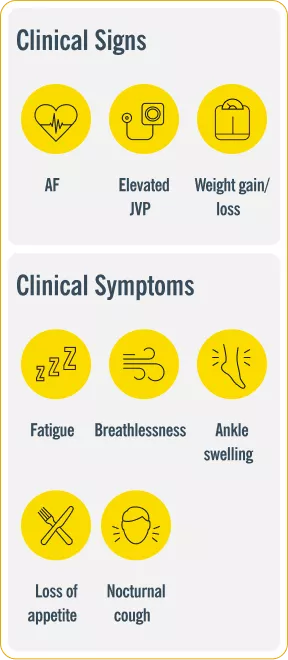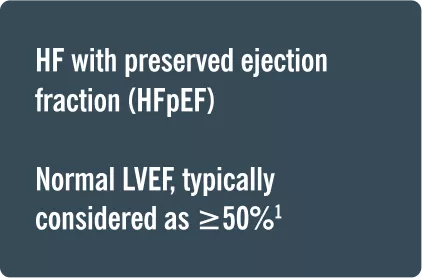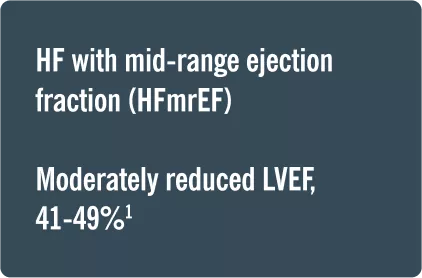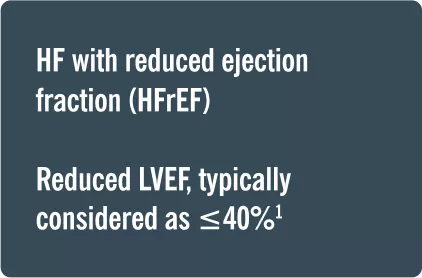

Heart failure
Heart failure (HF) is defined by the European Society of Cardiology as a clinical syndrome characterised by symptoms such as breathlessness, ankle swelling and fatigue, that may be accompanied by signs such as elevated jugular venous pressure, pulmonary crackles and peripheral oedema. HF is caused by a structural
and/or functional cardiac abnormality, and results in a reduced cardiac output and/or elevated intracardiac pressures at rest or during stress.1
HF can be differentiated into three types based on the measurement of left ventricular ejection fraction: HF with preserved ejection fraction, HF with mid-range ejection fraction and HF with reduced ejection fraction.1
HF is usually classed as chronic (CHF) or acute (AHF). CHF describes an established diagnosis of HF or a more gradual onset of symptoms. If CHF deteriorates, whether suddenly or slowly, the episode may be described as ‘decompensated’ HF. This can result in hospital admission or treatment with intravenous (IV) diuretic therapy in an outpatient setting. AHF refers to a rapid or gradual onset of symptoms and/or signs of HF, HF signs and symptoms that are severe enough for the patient to seek urgent medical attention. This leads to an unplanned hospital admission or an emergency department visit.


Types of HF
The main terminology used to describe HF is based on the measurement of left ventricular ejection fraction (LVEF).1 Differentiating patients this way is important due to different underlying aetiologies, demographics, co-morbidities and response to therapies.1
Epidemiology
There are around 920,000 people in the UK living with heart failure. Both the incidence and prevalence of heart failure increase with age, with an average age of 77 years at diagnosis.2



References
McDonagh TA, et al. Eur Heart J 2021;42(36):3599-3726.
NICE guideline [NG106]. Chronic heart failure in adults: diagnosis and management. Available at: https://www.nice.org.uk/guidance/ng106/resources/chronic-heart-failure-in-adults-diagnosis-and-management-pdf-66141541311685. Accessed January 2025.
UK | January 2025 | FA-11340524
Adverse events should be reported. Reporting forms and information can be found at www.mhra.gov.uk/yellowcard.

